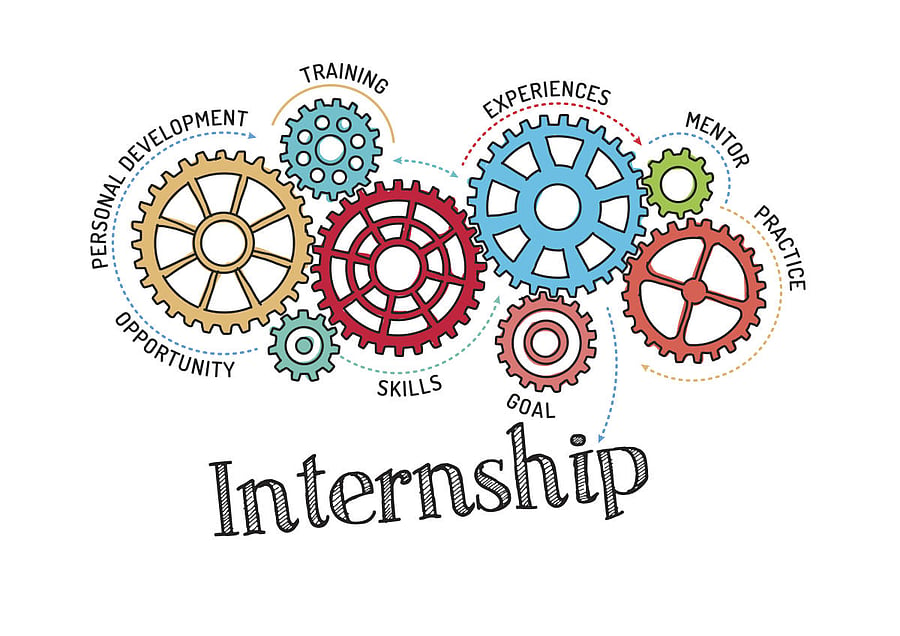
A meaningful internship acts as a launchpad for a student's career. It not only equips you with practical and interpersonal skills, but also gives you an opportunity to build a strong network. It helps you lift your career graph and take the big leap. With All India Council For Technical Education (AICTE) making three internships mandatory for engineering students, work experience can be the solution for India's struggle with low employability rate and skill gap.
Fast-track your career
The summer break is the most popular season for internships in India as students have longer breaks and can find opportunities easily. So, students are eager to know how an internship can help them and what they should do to improve their chances of finding the right one.
To start off, here are three ways in which an internship can help:
Acquiring soft skills: Students, especially those in the first year of college, might have limited technical knowledge. So, opting for an internship can help them learn to work in a team and hone their communication skills right at the start of their college.
Learning practical application of technical skills: While a student is in the second or third year of college, he or she might have gained a better insight of the field they want to enter. This is the time to deploy those skills in a real-time environment. For instance, if you are interested in a career in programming, then intern with an organisation where you could work on the basics and learn web or mobile app development. Work on live projects and participate actively in coding challenges. During this period, you could also start networking with professionals in your area of interest as it would open the doors of opportunity for you. At the end of your internship, you will have a clarity on whether you want to pursue a career in your chosen field or switch tracks.
Landing your first job: The experience you gain from the first two internships will prepare for your dream internship. By this time, you will have a shinier resume, and you can start applying for the internship with your dream organisations. The previous experience would also prepare you for a tougher interview process. But, once you crack it and land your dream internship, put equal effort into applying your knowledge and gaining new skills. This internship might help you land your first job as you might end up getting a pre-placement offer!
Here are some of the common internship profiles that students usually apply to:
Management: If you are interested in business or management side of things, you can apply for internships in finance, operations, human resources, sales and marketing. In a management internship, you would learn the basics of general management and understand various
aspects of a business.
Science: Science students can take up research internships with institutions or with professors. They would be able to gain valuable experience by assisting professors in conducting various experiments and developing e-learning content. Last year, Rishikesh, a student of VIT University, interned with Professor H C Verma, an experimental physicist who has authored several books on physics for students. With him, he created teaching concepts of Physics through Indian mythology and folklore.
Commerce: Students can find many internship opportunities in accounts, audit and finance. Many commerce students also pursue Chartered Accountancy and an internship can help them gain a better understanding of the subjects. They could gain professional experience before they complete their CA Articleship!
Engineering: Students with interest in computer science can opt for a wide array of internships including mobile app and web development. Similarly, students from the mechanical background can find internships in Industrial Design, Mechatronics, CAD Design etc. Electronics students can find internships in profiles like Internet of Things, Embedded System, VLSI, Robotics, and Signal
Processing.
Media: Media students can intern in areas such as content writing, social media marketing, journalism, blogging and videography. This would be an added advantage for the students as they would be able to acquire relevant skills before they step out of college.
Design: Graphic designers are in demand today as many organisations are vying to build their brand presence online. Students can intern as product designers, creative designers and UI/UX designers.
Factors to consider
This seems exciting, doesn't it? So, what do you need to keep in mind while applying for internships? Before you start sending out applications, figure out your area of interest and see if it matches your skills. Here are two key points that you should consider while applying:
Tailor your application: By sending a generic application, you would not be able to stand apart from the hundreds of applications the recruiter receives. So, take some time to research the organisation and customise your application based on the job description. A strong application without any spelling and grammar mistakes, written in a professional manner makes the employer take a second look at the candidate! At the same time, keep your resume crisp and minimalistic with links to the projects you have worked on, and relevant skills.
Make your profile stand out: As a candidate, you need to show the employer how you can add to the organisation. As employers prefer candidates with previous work experience, previous practical experiences and projects can help increase your chances of landing an internship. But make sure that you only put relevant experiences on the application. To widen your horizons, consider doing online courses and projects related to your field.
Finding the perfect internship for yourself may feel a little overwhelming in the beginning. However, with right amount of planning and effort, and with a bit of patience, you would be able to add a meaningful internship to your resume and get ready to step out in the real world with lot more confidence.
(The author is founder and chief executive officer, Internshala)